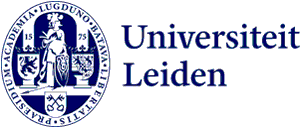Lecture
SAILS Mini-Symposium on Legal Search Technologies
- Date
- Wednesday 8 March 2023
- Time
- Address
- Kamerlingh Onnes Gebouw B0.16
Leiden
The symposium is organized to celebrate the PhD defence of Gineke Wiggers (on the same day). The title of her dissertation is “The Relevance of Impact: bibliometric-enhanced legal information retrieval”. It takes place in KOG, room B0.16.
We have three interesting speakers:
Prof. Allan Hanbury (Informatics, TU Wien): Professional Search in the Legal Context
Professional Search is undertaken by paid professionals as part of their work tasks. It has specific characteristics such as fewer documents to index, fewer user interaction data, a requirement for explainability and often a "tradition" in how the search is done. In this talk we examine some of these aspects in the context of legal search and describe solutions that take them into account.
Dr. Francien Dechesne (eLaw, Leiden University): Predictions are not decisions: AI and the legal practice
In this talk I will discuss some different applications of artificial intelligence that play a role in the broad practice of law. Law is very much text based, and with the recent developments in language processing (think of ChatGPT), it seems that much of the legal work could be automated – or at least be done more efficiently. However, I will claim that the current tools should not be mistaken to be able to take decisions or make judgments. I will reflect on how I think the focus of the legal profession will shift under these developments, and what this means for educating future lawyers.
Prof. Ludo Waltman (CWTS, Leiden University): Information retrieval in the era of open science
The ultimate goal of research in information retrieval should be to optimally address the needs of those seeking for information. I will discuss ideas developed by the open science movement that may help the field of information retrieval to get closer to realizing this goal. I will provide examples from the domain of academic information retrieval to illustrate these ideas. I will conclude by offering some reflections on implications for information retrieval researchers.
